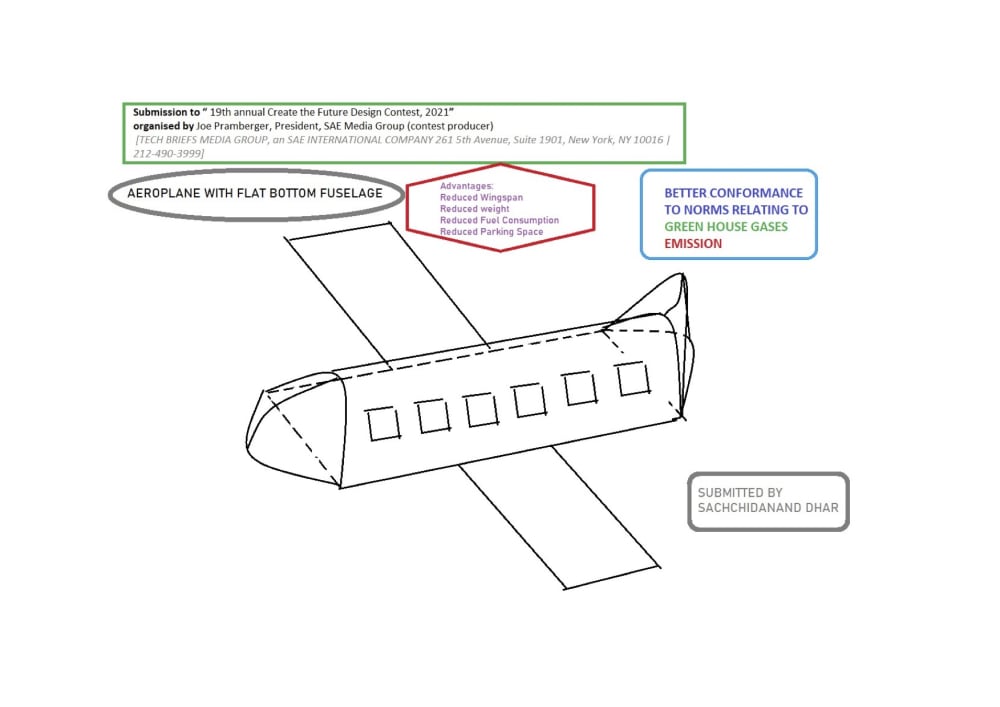EXTRACT: Changing the shape of fuselage of an aircraft can result in increased lift, reduced drag and less weight, thereby resulting in overall fuel economy.
INTRODUCTION: Most airplanes have a long CYLINDRICAL fuselage which does not add to the lifting force, but does add to the drag. Shaping the fuselage differently can add to the lift, so wingspan can be reduced to reduce overall drag and also weight reduction.
SUGGESTION: It is suggested that the BOTTOM SURFACE OF FUSELAGE BE MADE FLAT, so it can generate lifting force for keeping the aircraft afloat in air.
PERCEIVED ADVANTAGES:
- To provide same quantity of lifting force, SPEED CAN BE REDUCED, because flat bottom of fuselage will provide extra lift.
- Reduction in speed will lead to good amount of FUEL ECONOMY, because fuel consumption varies by cubes of variation in speed.
- If it is a requirement that speed be maintained, then for achieving the same amount of lifting force, WING SIZE CAN BE REDUCED.
- Reduction in wing size will lead to following advantages:
4.1. REDUCTION IN WEIGHT, leading to reduced fuel consumption.
4.2. Reduction in quantity of metal required, leading to LOWER MANUFACTURING COST.
4.3. Reduction in surface area, leading to reduced drag, thereby REDUCED FUEL CONSUMPTION.
4.4. RREDUCTION IN REQUIREMENT OF MANOEUVRING AND PARKING SPACE, if length of wings is reduced, THEREBY REDUCTION IN EXPENSES FOR PARKING SPACE. - REDUCTION IN FUEL CONSUMPTION will help operators comply with Government norms with respect to GREEN HOUSE GASES EMISSION, without sacrificing on speed; and, thereby keeping the operations financially viable.
Like this entry?
-
About the Entrant
- Name:Sachchidanand Dhar
- Type of entry:individual
- Software used for this entry:NONE
- Patent status:none

